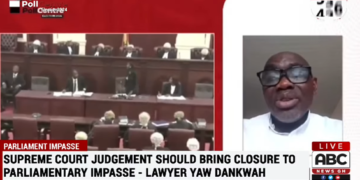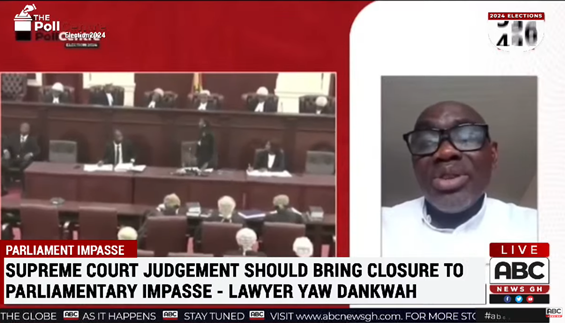Private legal practitioner, Yaw Dankwah, has clarified that the behavior of a Member of Parliament (MP) should not be interpreted as a switch in political allegiance.
His comments came in response to a recent Supreme Court ruling which stated that an MP’s seat can only be vacated if they formally switch political parties while in Parliament.
Dankwah emphasized that while MPs may sometimes act in ways that seem contradictory to their party’s position, these actions should not automatically be seen as a betrayal or party switch.
In an interview on ABC in the Morning, Dankwah argued that parliamentary cooperation is often essential for national progress, even when MPs from different parties work together.
“A behavior of an MP does not constitute a switch,” he said, stressing that opposing parties may still support government policies if they believe they will benefit the nation.
He pointed to the lack of continuity in Ghanaian politics, where new governments often reject the policies of their predecessors simply because they want to avoid giving credit to the opposition. This, Dankwah argued, has led to a culture of selfishness and nepotism, hindering national development.
Dankwah further expressed his support for the Supreme Court’s judgment, which he believes will bring clarity to the ongoing confusion regarding parliamentary conduct.
He hopes the court’s ruling will serve as a precedent for future legislative behavior, ensuring that MPs remain aligned with constitutional mandates and preventing further standoffs in Parliament.

































